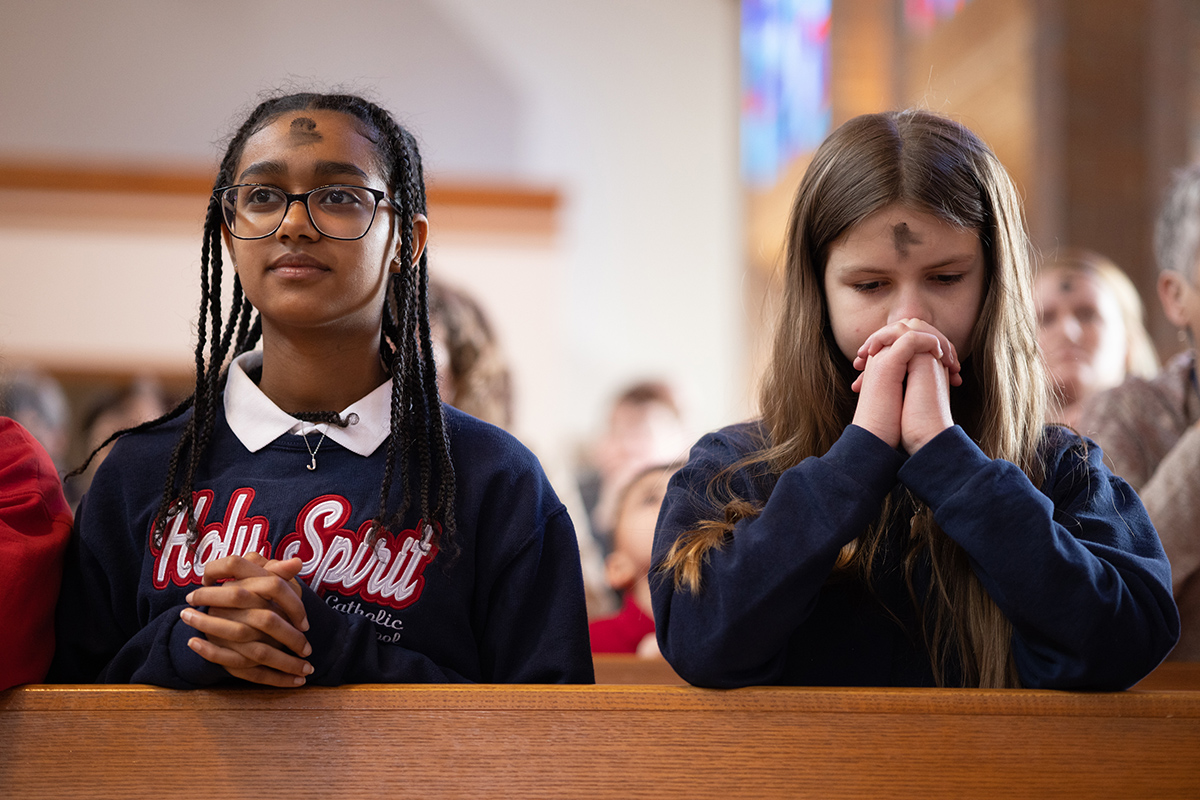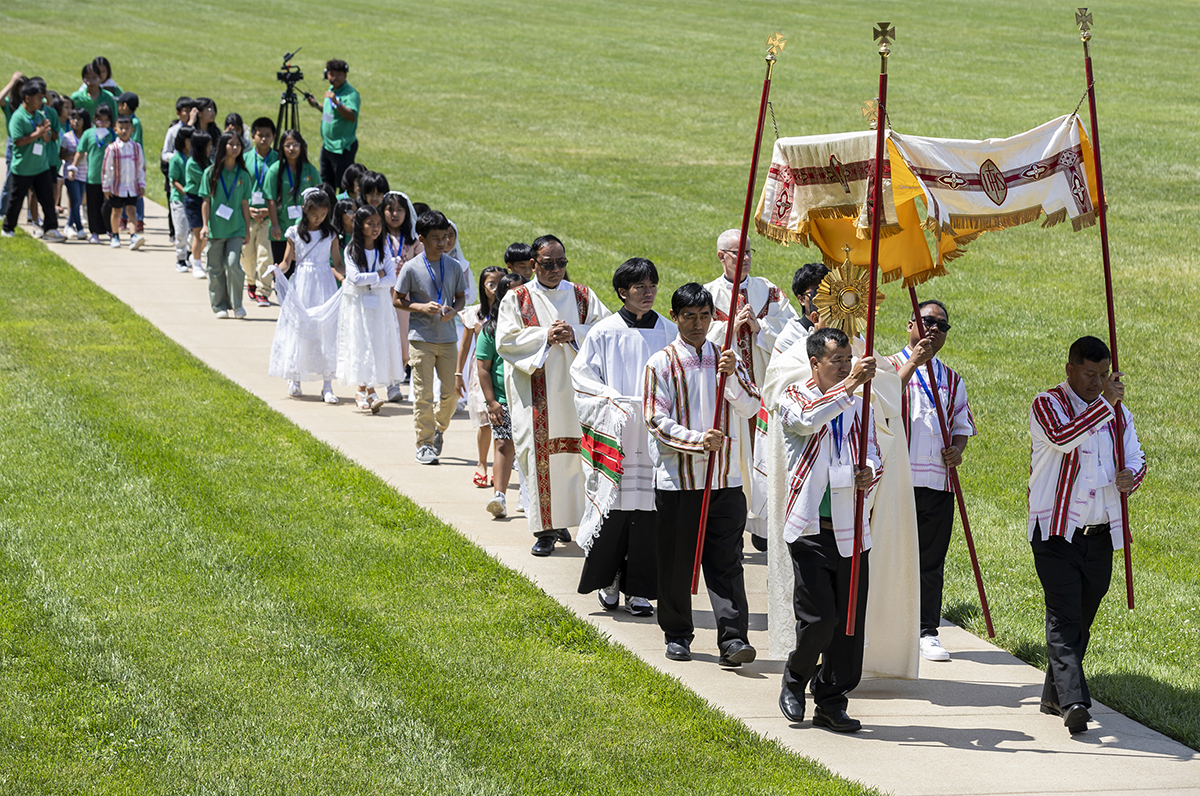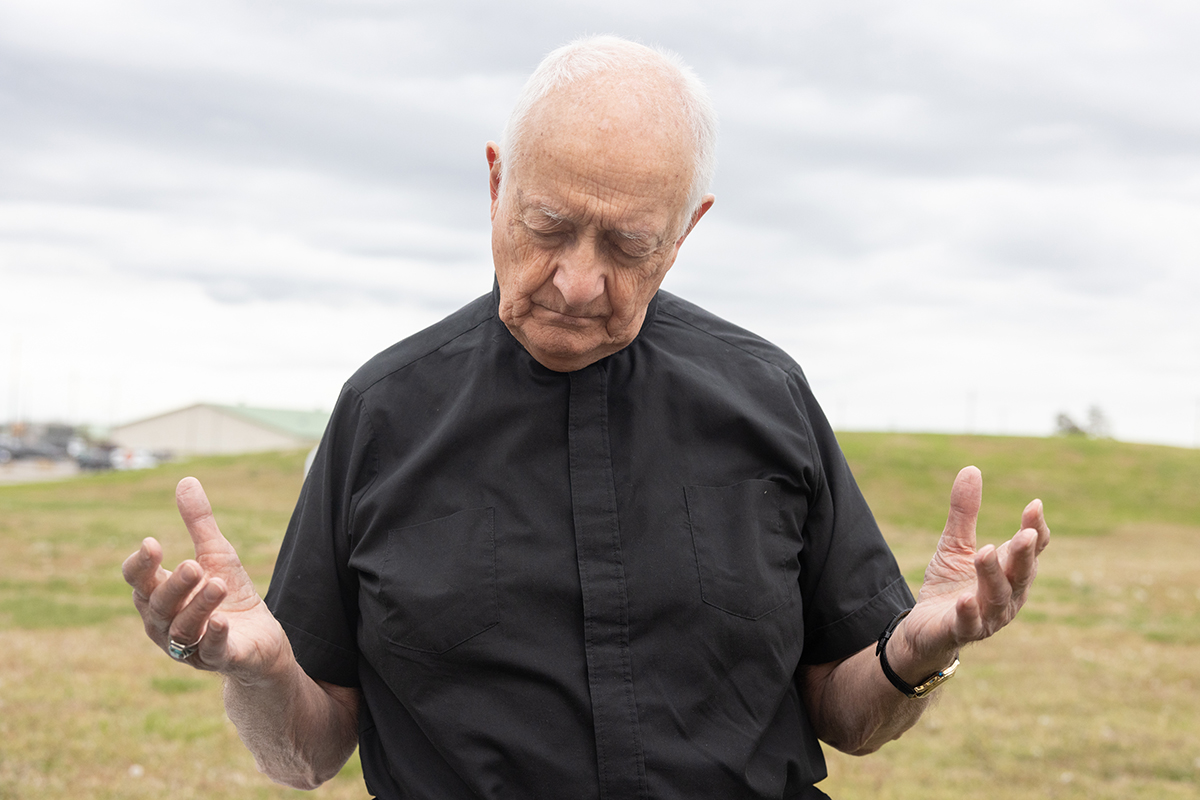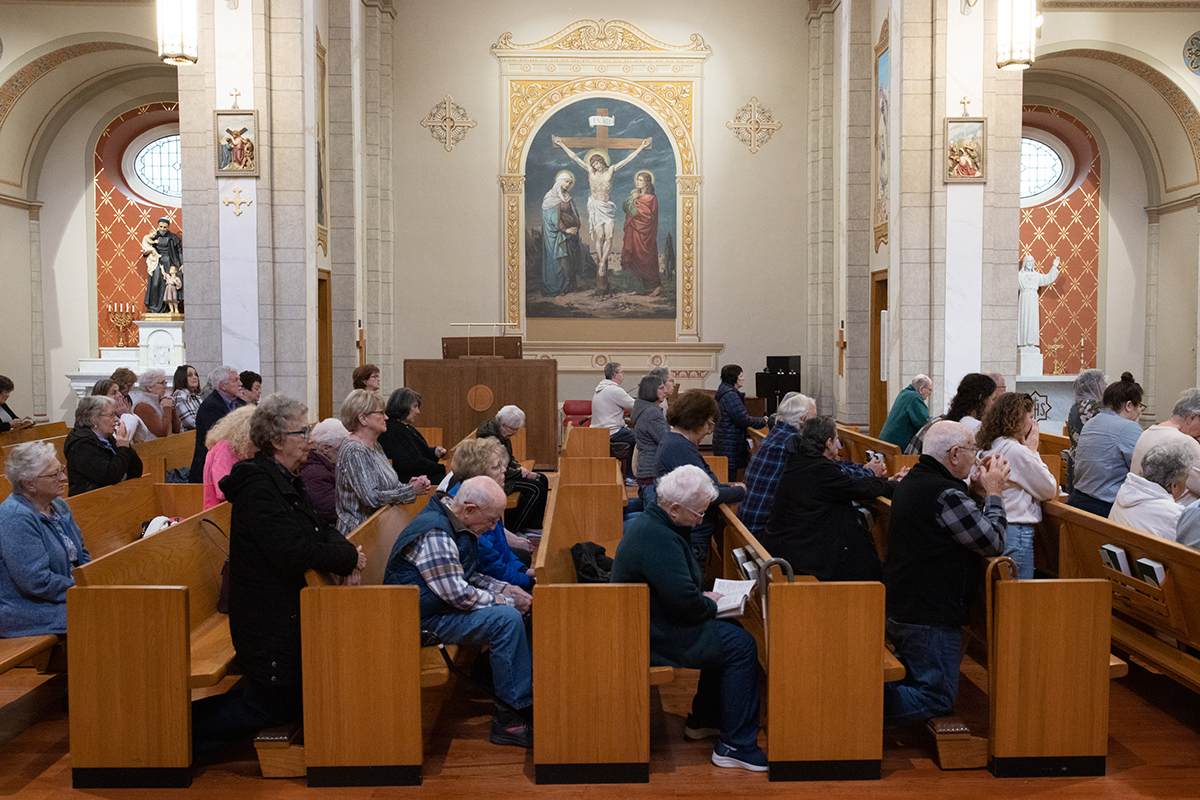Feasting and fasting in Lent

Lent is a time to turn away from the things that aren’t life giving and turn toward God
The Lenten season is a time of prayer, fasting and almsgiving, a pathway toward Easter and Christ’s victory over death. This year, Ash Wednesday falls on March 5. Easter Sunday is April 20.
Many Catholics make sacrifices or do something extra to grow in faith during this time of year. Lent is also a time in which parishes will offer special activities — a mission, Stations of the Cross, extra times for the sacrament of reconciliation, service opportunities and even fish fries — to aid in the Lenten journey.
Here are some suggestions for fasting and feasting as a Lenten practice, which involves giving up certain things and focusing on others. These practical suggestions can lead us to turn away from things that don’t give life and instead turn toward God.

Fast from judging others; feast on Christ in them
It’s easy to see Jesus in those who show us love, kindness and mercy. But how often do we truly see the face of Christ in those we disagree with? Start by looking in the mirror. We are all made in the image and likeness of God. If you don’t like what you see, make some changes to the way you live your life. For those you disagree with, consider that they’re made in God’s image, too, a unique individual who is loved by God.
“Let the one among you who is without sin be the first to throw a stone.” (John 8:7)

Fast from wanting more; feast on being thankful
At times, it seems easier to be frustrated by what we don’t have than to be thankful for what we do have. Gratitude is more than a feeling. It is a choice to acknowledge what we have and to give thanks and love to God, who is the source of all good things. Putting others’ needs before ours is another way to express gratitude. Think about ways you can share your gifts with others, whether that’s with time, talent or treasure.
“In all circumstances give thanks, for this is the will of God for you in Christ Jesus.” (1 Thessalonians 5:18)

Fast from worry; feast on trust
Worry affects all of us. Maybe there’s a problem with our finances, a job or a relationship with a loved one. How do we overcome those feelings of worry? We can start by understanding that even in the face of anxiety, God can bring good out of the situation. Turn to God in prayer and ask Him to help us surrender to His plan. Living in the present moment is another way to overcome anxiety about the future. When we think, “What if?” we should tell ourselves it’s not worth thinking about in the present moment.
“In all things, God works for good in those who love him.” (Romans 8:28)

Fast from complaining; feast on enjoyment
Complaining is a normal part of life, no matter how minor the issue may be. If you find yourself in that mindset, stop and think: “Is this worth it?” The key to overcoming it is to shift the focus to what brings us enjoyment. When an intrusive thought enters your mind, think of a few things that you enjoy in the present moment. Avoid negative self-talk in moments of trial by asking, “How can I?” rather than saying, “I can’t.”
“Those who seek the good seek favor, but those who pursue evil will have evil come upon them.” (Proverbs 11:27)

Fast from stress; feast on prayer
Prayer is one of the primary practices of Lent. It strengthens us to commit to the other two elements of making a good Lent: fasting and almsgiving. One of the best ways to increase our prayer life is to carve out time every day. Start with five or 10 minutes. Use an app like Hallow or look for opportunities at your parish to pray in community. Prayer allows us to experience the pilgrim journey of Lent more fully.
“I turned to the Lord God, to seek help, in prayer and petition, with fasting, sackcloth and ashes.” (Daniel 9:3)

Fast from anger; feast on forgiveness
It can be challenging to forgive because it requires understanding and generosity. One way to focus on forgiving others is to ask ourselves what we want. Do we want to forgive? Can we imagine how it might feel to forgive another person rather than stay angry? Could we see ourselves freer, happier and more at peace? Forgiveness ultimately is a choice that restores healthy relationships with God and one another.
“If you forgive others their transgressions, your heavenly Father will forgive you. But if you do not forgive others, neither will your Father forgive your transgressions.” (Matthew 6:14-15)

Fast from gossip; feast on silence
When we speak unkindly about others, it can cause damage to relationships and, ultimately, division in the Body of Christ. Instead, resolve to be quiet when faced with the temptation of gossip. Other ways we can overcome gossip are to examine our motivation for speaking about another person and assume the best in others. When faced with someone else’s gossip, we can stop the conversation and resolve to have more positive interactions.
“No foul language should come out of your mouths, but only such as is good for needed edification, that it may impart grace to those who hear.” (Ephesians 4:29)
Lenten regulations for the Archdiocese of St. Louis
“For God so loved the world that he gave his only Son, so that everyone who believes in him might not perish but might have eternal life. For God did not send his Son into the world to condemn the world, but that the world might be saved through him.” (John 3:16-17)
The Church has always helped us fulfill these words of Jesus by prescribing very definite penance for all Catholics, so that we too might have eternal life. Accordingly, the pope and the American bishops have outlined obligatory fast and abstinence as follows: Ash Wednesday (March 5, OVERSET FOLLOWS:2025), all Fridays of Lent and Good Friday (April 18, 2025) are days of abstinence (refraining from meat) for all Catholics from age 14 onwards.
On Ash Wednesday and Good Friday, fast, as well as abstinence, is also obligatory for those from the ages of 18-59. Abstinence means refraining from meat. Fast means one full meal a day, with two smaller meals and nothing between meals (liquids are permitted). No Catholic will lightly excuse himself or herself from this obligation.
Lenten resources
• Watch the Archdiocese of St. Louis on Instagram @arch_stl and Facebook @archstl for reflections throughout Lent
• Hallow features Catholic content designed to help users dive deeper into prayer. The archdiocese has partnered with Hallow. There will be a special prayer challenge during Lent called Pray 40. Visit archstl.org/pray.
• Augustine Institute Formed: formed.org
• Best Lent Ever daily reflections: dynamiccatholic.com/best-lent-ever
• Bishop Barron’s Word on Fire Lenten Reflections: www.wordonfire.org/reflections
Lenten fish fry map
The St. Louis Review maintains a map of Lenten fish fries throughout the archdiocese. To submit your fish fry, visit www.stlouisreview.com/story/lenten-fish-fries.
Lent is a time to turn away from the things that aren’t life giving and turn toward God
Subscribe to Read All St. Louis Review Stories
All readers receive 5 stories to read free per month. After that, readers will need to be logged in.
If you are currently receive the St. Louis Review at your home or office, please send your name and address (and subscriber id if you know it) to subscriptions@stlouisreview.com to get your login information.
If you are not currently a subscriber to the St. Louis Review, please contact subscriptions@stlouisreview.com for information on how to subscribe.







